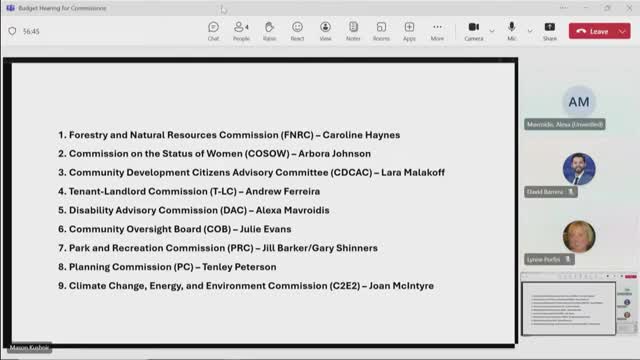Article not found
This article is no longer available. But don't worry—we've gathered other articles that discuss the same topic.
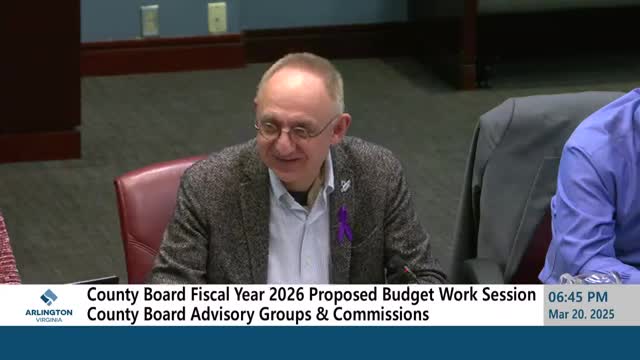
Northern Virginia Juvenile Detention Commission warns of staffing shortfalls and $90,000 USDA school-food funding gap
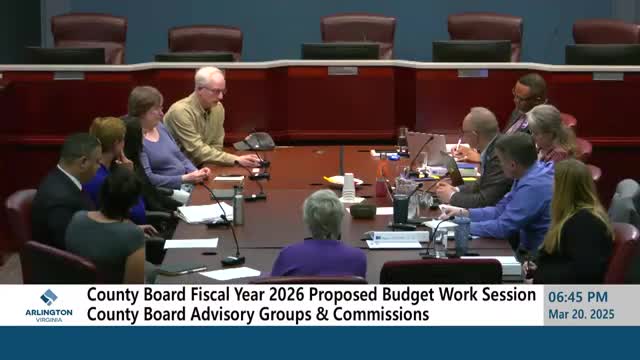
Planning commission urges preserving principal planner position and cautions on large fee increases
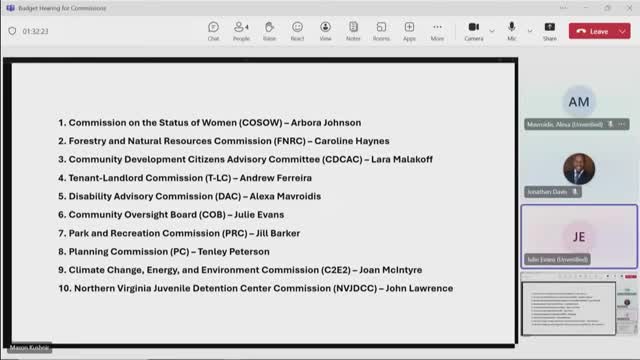
Community Oversight Board asks for dedicated budget and staff to sustain investigations and special projects
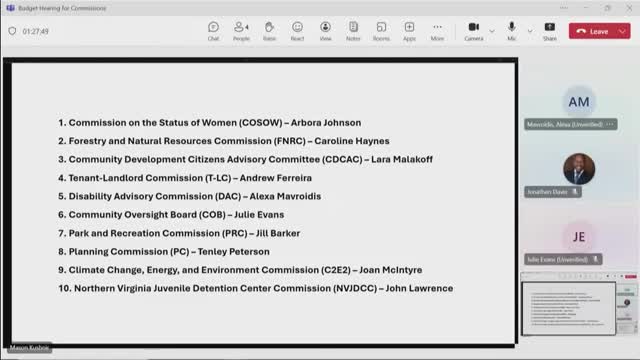
Disability Advisory Commission urges maintaining disability services funding and improving usability of accessible facilities
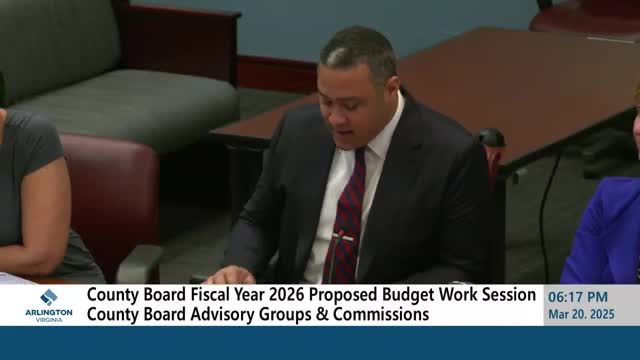
Tenant-Landlord commission urges restoration of code-enforcement position and keeps $150,000 for housing inspections
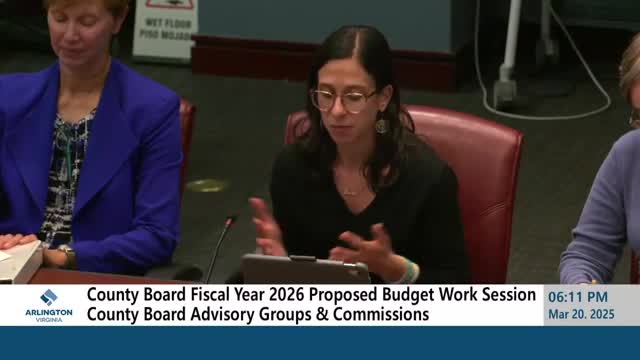
Community Development committee recommends funding 33 of 43 applications; total requests near $1.8 million
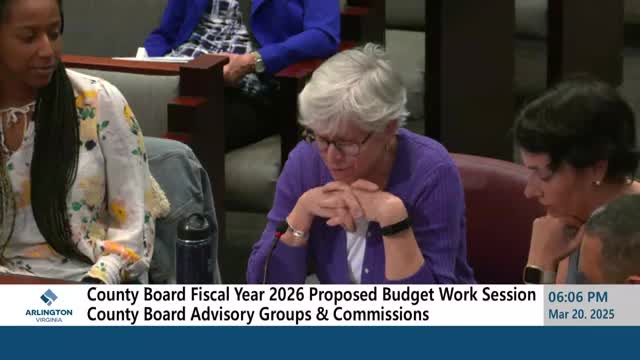
Forestry and Parks commissions urge restoring Northern Virginia Conservation Trust funding, long-term tree canopy investments and deer management
